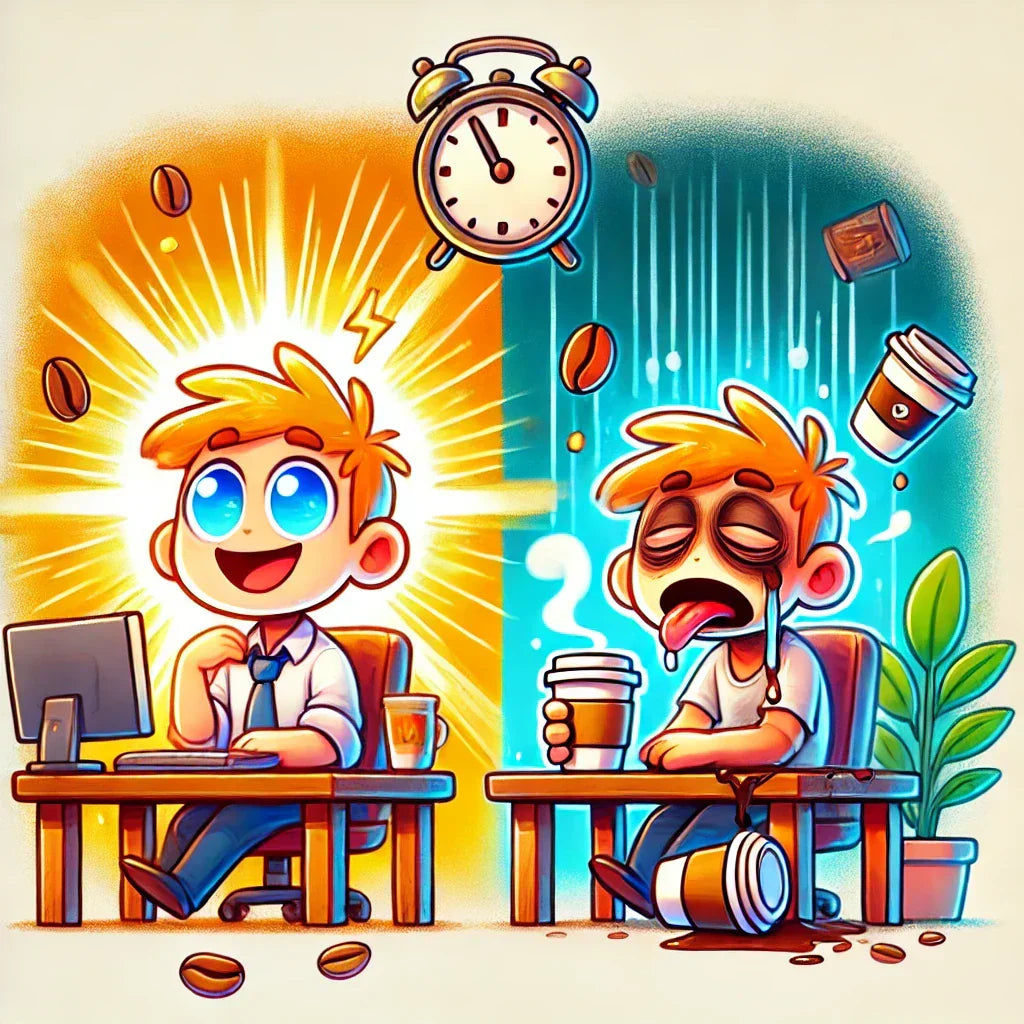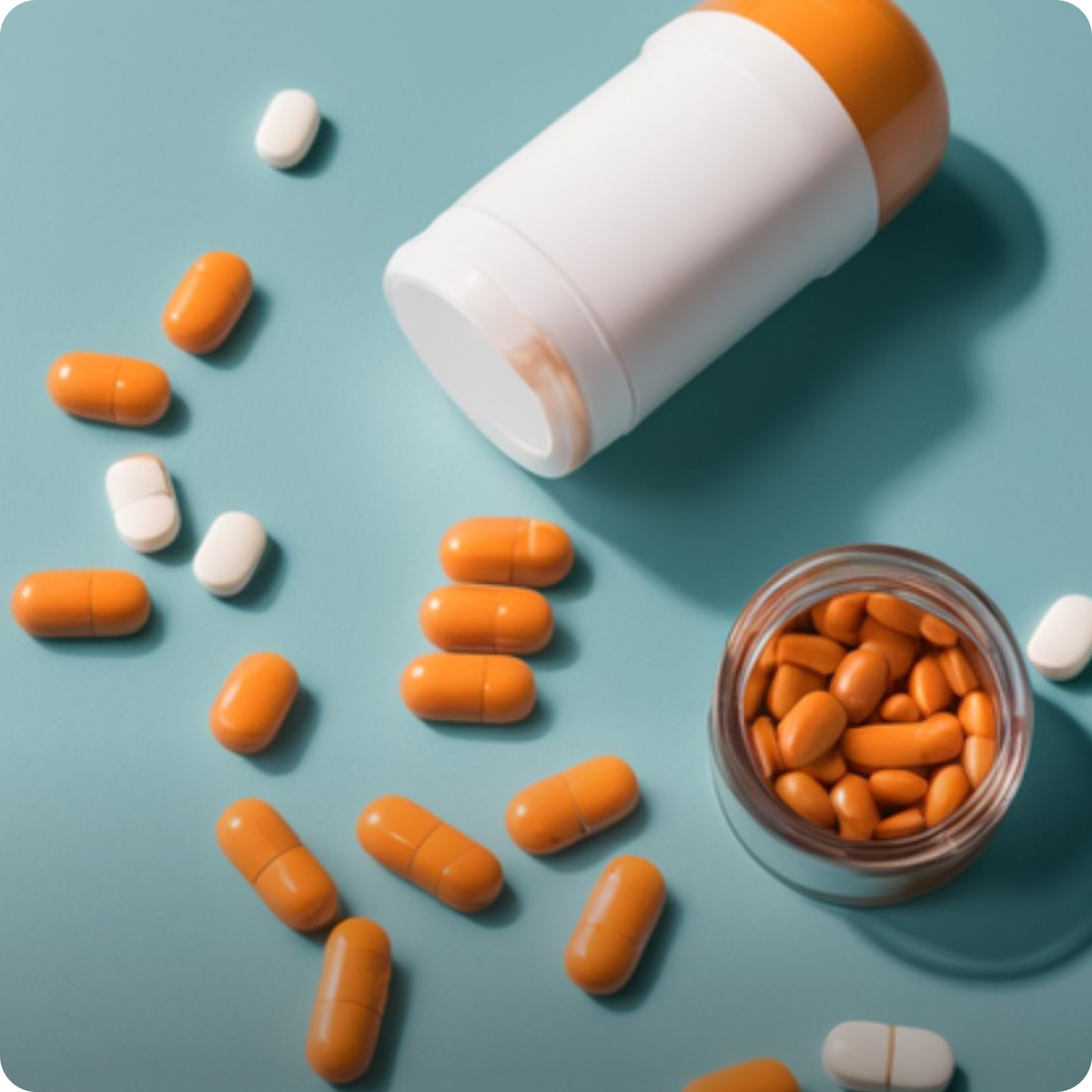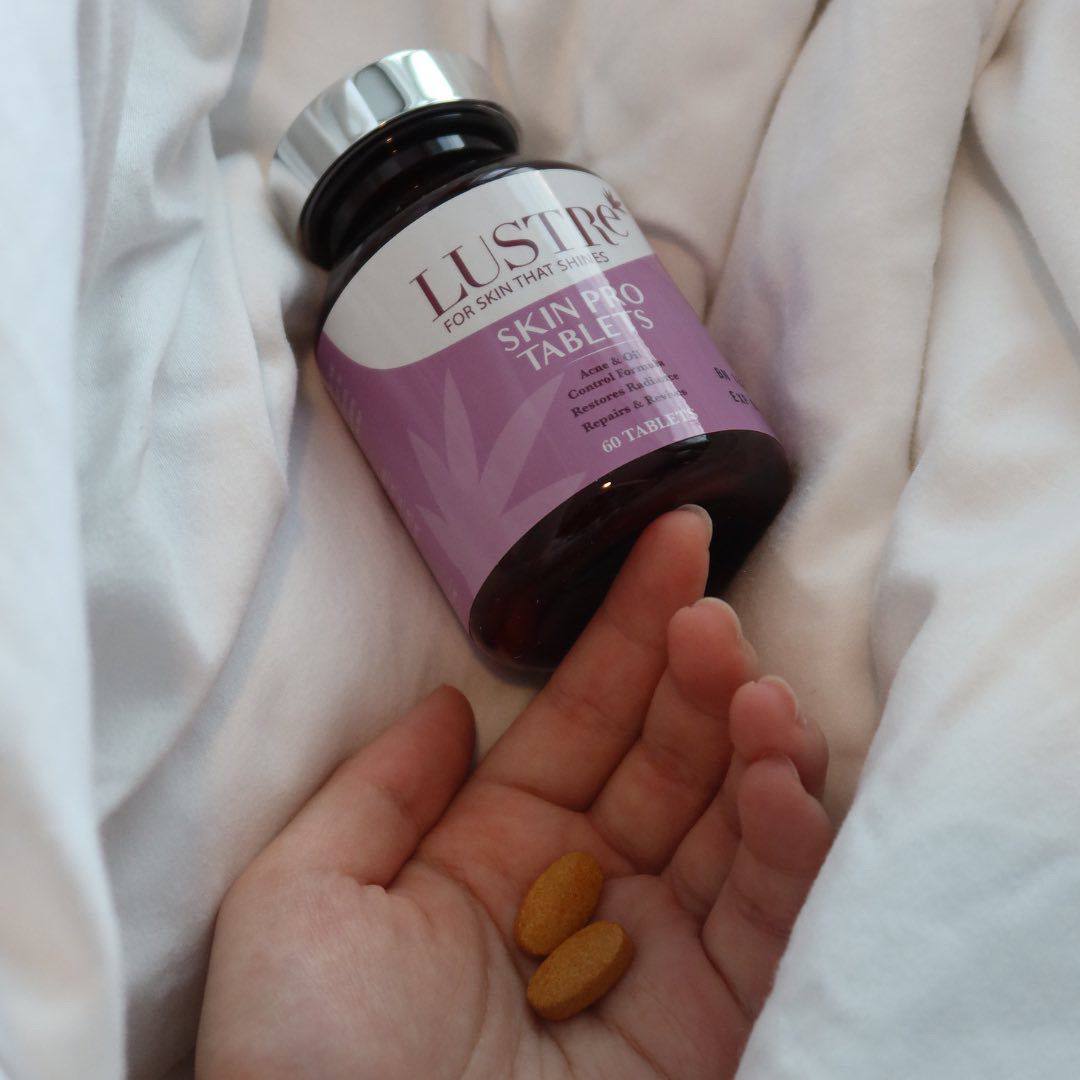How Your Caffeine Habit Might Be Making You More Tired

Do you start your day with coffee or energy drinks, hoping for an energy boost, only to feel even more tired later? While caffeine is known for increasing alertness, too much of it can actually drain your energy, leaving you sluggish and exhausted.
Caffeine works by blocking tiredness signals in your brain, but when overused, it can cause energy crashes, sleep problems, and even dependence. Let’s break down how caffeine affects your energy and what science says about it.
How Caffeine Affects Your Energy
Caffeine is a stimulant that tricks your brain into feeling awake by blocking adenosine, a chemical that makes you sleepy.
How It Works
-
Blocks Sleepiness – Normally, adenosine builds up in your brain throughout the day, making you sleepy by night. Caffeine blocks it, so you feel alert.
-
Boosts Mood – Caffeine increases dopamine, which temporarily improves mood and focus.
-
Causes Energy Crashes – Caffeine only blocks adenosine for a while. Once it wears off, adenosine floods back in, making you feel extra tired.
At first, caffeine may feel like an energy booster, but too much of it can make you feel more drained in the long run.
Why Caffeine Might Be Making You More Tired
1. The Energy Crash
Caffeine gives you a short burst of energy, but once it wears off, you may feel:
- Sudden fatigue
- Trouble concentrating
- Mood swings or irritability
Since caffeine only temporarily blocks sleepiness, you can feel even more exhausted when it wears off.
2. Disrupts Your Sleep
Drinking caffeine too late in the day can make it harder to fall and stay asleep. Even if you don’t realize it, caffeine can reduce deep sleep, causing:
- Restless sleep
- Waking up often at night
- Feeling groggy in the morning
A study in The Journal of Clinical Sleep Medicine found that drinking caffeine even six hours before bed can reduce sleep time by over one hour and make sleep less restful.
3. Builds Dependence & Tolerance
If you drink caffeine regularly, your body gets used to it, and over time, you need more to feel the same boost. This leads to:
- Drinking more caffeine
- Weaker effects
- Bigger energy crashes
If you try to cut back, you might feel withdrawal symptoms like headaches, tiredness, and brain fog.
4. Causes Dehydration
Caffeine makes you urinate more, which can lead to dehydration. When dehydrated, you may experience:
- Low energy
- Headaches
- Difficulty focusing
Drinking caffeine without enough water can leave you feeling drained.
5. Increases Stress Hormones
Caffeine raises cortisol, the stress hormone. A temporary boost can help, but too much can make you feel anxious and burned out.
A Psychosomatic Medicine study found that caffeine increases cortisol and adrenaline, which can lead to long-term fatigue.
Side Effects of Too Much Caffeine
Drinking more than 400 mg of caffeine per day (about 4 cups of coffee) can cause:
- Anxiety and restlessness
- Poor sleep and insomnia
- Heart palpitations
- Stomach problems (acid reflux, nausea, bloating)
- Frequent urination and dehydration
- High blood pressure
These side effects can make you feel more tired rather than energized.
Scientific Studies on Caffeine & Fatigue
-
Caffeine & Sleep – A study in The Journal of Clinical Sleep Medicine found that caffeine taken six hours before bedtime reduces sleep time and quality, leading to next-day fatigue.
-
Caffeine & Stress – A Psychosomatic Medicine study found that caffeine increases stress hormones, making the body feel constantly on edge.
-
Caffeine Tolerance – Research in The American Journal of Psychiatry found that regular caffeine users need more caffeine over time to feel the same effect, leading to dependence and energy crashes.
These studies confirm that while caffeine can boost energy short-term, overuse leads to long-term fatigue.
How to Drink Caffeine Without the Crash
If you love caffeine but want to avoid energy crashes, follow these tips:
1. Limit Your Intake
- Keep caffeine under 200-300 mg per day (about 2-3 cups of coffee).
- Avoid caffeine after 2 PM to protect your sleep.
2. Drink More Water
- Stay hydrated to avoid caffeine-related dehydration.
- Swap one coffee a day for herbal tea or infused water.
3. Improve Your Sleep
- Reduce caffeine if you struggle with sleep.
- Stick to a regular bedtime and avoid screens before bed.
4. Eat the Right Foods
- Drink coffee with food, not on an empty stomach, to avoid energy crashes.
- Eat protein and healthy fats to keep energy levels stable.
5. Try Caffeine Alternatives
If you rely too much on caffeine, try natural energy boosters like:
- Matcha green tea – Lower caffeine but a more steady energy boost
- Ginseng or Rhodiola – Herbal supplements that support energy & reduce stress
- B vitamins & magnesium – Help your body produce energy naturally
Conclusion
Caffeine can be a great way to boost energy, but too much can leave you even more tired. Its effects depend on how and when you drink it.
To avoid energy crashes, try limiting caffeine, drinking more water, improving sleep, and eating a balanced diet.
If you feel constantly tired despite drinking caffeine, it might be time to rethink your habits. Choose smarter ways to stay energized—without the crash.





